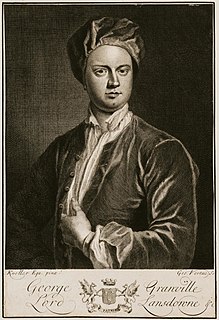A Quote by Francesco Guicciardini
Like other men, I have sought honours and preferment, and often have obtained them beyond my wishes or hopes. Yet never have I found in them that content which I had figured beforehand in my mind. A strong reason, if we well consider it, why we should disencumber ourselves of vain desires.
Related Quotes
Vain men delight in telling what Honours have been done them, what great Company they have kept, and the like; by which they plainly confess, that these Honours were more than their Due, and such as their Friends would not believe if they had not been told: Whereas a Man truly proud, thinks the greatest Honours below his Merit, and consequently scorns to boast. I therefore deliver it as a Maxim that whoever desires the Character of a proud Man, ought to conceal his Vanity.
I am sure that never was a people, who had more reason to acknowledge a Divine interposition in their affairs, than those of the United States; and I should be pained to believe that they have forgotten that agency, which was so often manifested during our Revolution, or that they failed to consider the omnipotence of that God who is alone able to protect them.
The reason why the simpler sort are moved with authority, is the consciousness of their own ignorance; whereby it cometh to pass that having learned men in admiration, they rather fear to dislike them than know wherefore they should allow and follow their judgments. Contrariwise with them that are skilful authority is much more strong and forcible; because they only are able to discern how just cause there is why to some men's authority so much should be attributed.
It is with art as with love: How can a man of the world,with all his distractions, keep the inwardness which an artist must possess if he hopes to attain perfection? That inwardness which the spectator must share if he is to understand the work as the artist wishes and hopes... Believe me, talents are like virtues; either you must love them for their own sake or renounce them altogether. And they are only recognized and rewarded when we have practised them in secret, like a dangerous mystery."
Being able to recognize which of your desires are vital to pursue and which ones are not is often less than easy. This is precisely why the ancient sages counseled that we practice yoga. Their point was a very practical one: You are best able to discern which of your many desires should (and should not) be responded to when your mind is calm and tranquil.
It was pleasant to me to get a letter from you the other day. Perhaps I should have found it pleasanter if I had been able to decipher it. I don't think that I mastered anything beyond the date (which I knew) and the signature (which I guessed at). There's a singular and a perpetual charm in a letter of yours; it never grows old, it never loses its novelty. Other letters are read and thrown away and forgotten, but yours are kept forever - unread. One of them will last a reasonable man a lifetime.
Young men have strong passions and tend to gratify them indiscriminately. Of the bodily desires, it is the sexual by which they are most swayed and in which they show absence of control...They are changeable and fickle in their desires which are violent while they last, but quickly over: their impulses are keen but not deep rooted.
It is cheering to note that [Martin] Luther (1524) did not see why schools should not be fun as well: "Now since the young must leap and jump, or have something to do, because they have a natural desire for it which should not be restrained (for it is not well to check them in everything) why should we not provide for them such schools, and lay before them such studies?
Upon the whole, therefore, she found, what has been sometimes found before, that an event to which she had looked forward with impatient desire, did not in taking place, bring all the satisfaction she had promised herself. It was consequently necessary to name some other period for the commencement of actual felicity; to have some other point on which her wishes and hopes might be fixed, and by again enjoying the pleasure of anticipation, console herself for the present, and prepare for another disappointment.
We are unknown to ourselves, we men of knowledge - and with good reason. We have never sought ourselves - how could it happen that we should ever find ourselves? It has rightly been said: "Where your treasure is, there will your heart be also"; our treasure is where the beehives of our knowledge are.








































